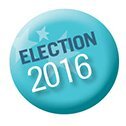Like the other 2016 presidential candidates, U.S Sen. Bernie Sanders, I-Vt., hasn’t spent a ton of time talking about public school policy. Compared to his higher education proposals, not to mention his focus on income inequality as a major ailment afflicting the nation, Sanders’ K-12 talk in his quest for the Democratic nomination has been confined to quick mentions of things like charter schools earlier this month.
But a fair share of teachers are attracted to Sanders’ broader message. That’s one of the themes I touch on in a story published online Tuesday. His supporters say that even though they wish he’d talk about public schools more, his general approach would mean a turn for the better in public education.

And it’s not as if Sanders’ K-12 record is barren. He’s expressed skepticism about standardized tests—he voted against the No Child Left Behind Act nearly 15 years ago for that reason while in the House of Representatives. Sanders is also not a fan of competitive grants like Race to the Top, a staple of President Barack Obama’s administration. Those two positions put Sanders on the same side as teachers who feel that education policy has regressed, not advanced, under Obama.
Mark Naison, the co-founder of the Badass Teachers Association, which opposes standardized testing and charter schools, said the senator’s approach changed somewhat earlier this month. Sanders attacked Chicago Mayor Rahm Emanuel for his policies on school closures and came down in favor of the Chicago Teachers Union about its members’ plans to walk off the job April 1.
“That was really the first time that Bernie Sanders went out of his way to distinguish himself from [Democratic candidate] Hillary Clinton on education,” Naison told me. (Naison himself, it should be noted, is backing Green Party candidate Jill Stein for president, not Sanders—the Badass Teachers Association hasn’t endorsed anyone.)
You might remember that the American Federation of Teachers and National Education Association endorsed Clinton relatively early for the Democratic primary last year, and there are still some teachers who are irked by that. That’s a source of irritation for Larry Proffitt, a Tennessee teacher, Sanders supporter, and candidate for the state legislature who I spoke to for my story. He’s not sure what would have happened if the national unions had held off on their endorsement, but Proffitt says it’s at least possible the candidates might have felt more pressure to address K-12 publicly.
“All the candidates, Republican and Democratic, have failed at that,” Proffitt told me.
So why hasn’t Sanders made a bigger deal about K-12 in 2016? William Howell, a political science professor at the University of Chicago, says one possible answer is that it’s hard for Sanders to fit sometimes-knotty K-12 policy positions into his bigger campaign themes about inequality and “political revolution.” And the Every Student Succeeds Act, signed into law last December, might also be another explanation.
“It’s not clear that big strides can be made in the next four years on K-12 education at the federal level,” Howell said.
